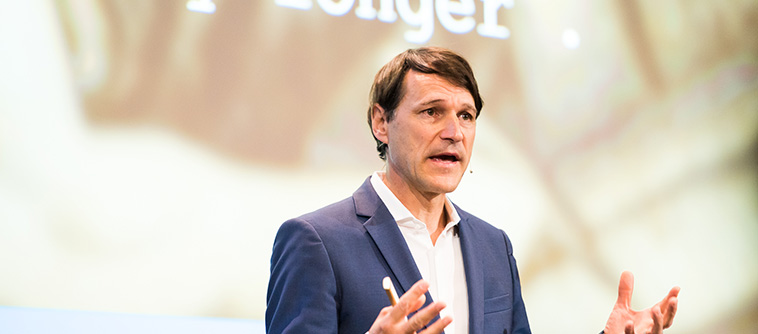You don’t normally expect to start a Monday morning at a world class business school watching a film featuring animated rats. Only when you realize that it’s depicting the rat race we all face today in modern living does it make perfect sense. Challenging your mind is what IMD does best. And today at Orchestrating Winning Performance’s (OWP) first keynote session makes you think – What makes for a good life? In other words, if happiness is what we seek, are we making the right choices? How can we ‘forecast happiness’? as Rolf Dobelli, author of ‘The Art of Thinking Clearly’ likes to call it.
Modern urban life bombards you with massive amounts of advertising to wade through as we choose which car or latest mobile phone will make us have a better day, year, or life. In essence, consumerism makes us buy stuff every day to make ourselves feel better – but is that working?
Decades and centuries ago, a good life was perceived to be found within the echoing walls of a monastery or church, in pious pursuit of god or religion. Arguably, this has directly translated today into pursuits of happiness through acquiring wealth, objects and money.
Is there a direct scientific correlation between wealth and happiness? Yes and no, says the expert, Dobelli. Studies show that although every dollar brings more happiness in lower income homes, as soon as you reach an approximate amount of 10k USD per month salary, your state of happiness actually hits a plateau.
So much for all the job promotions. So, then what should be our guiding light?
Focus on what he calls in his book ‘mental subtraction’. In short, it’s not the addition of wealth or objects but the subtraction of mindsets and thoughts that are destructive or toxic.
For example, a big killer of joy – he labels as Envy. Another emotion, habituation, is a big killer of happiness well-illustrated by the quote he puts up on the screen from the Greek stoic philosopher Epictetus.
“Instead of thinking about all the things you don’t yet have. Consider how much you’d miss the things you do have if you didn’t have them any longer”
Making his story personal to drive the point home he explains how queuing, as for many, was his pet-peeve. Now he consciously has decided he will not allow himself to get upset or frustrated for less than a ten-minute wait. After that he allows himself to vent.
Identifying what toxic emotions take away minutes of your daily life’s peace of mind is a crucial first step. The next step is consciously reducing its power over you by setting achievable goals – such as the 10 minutes rule.
Some great practical take-aways this morning are how it’s the little things (good or bad) that make up our day, weeks, and lives. It’s the little positive changes daily that ultimately change our life – into a good one.
How to make your life better: not a bad first learning in a week jam-packed with much more.
Watch the full event.
Stay tuned for more live insights from OWP 2019



